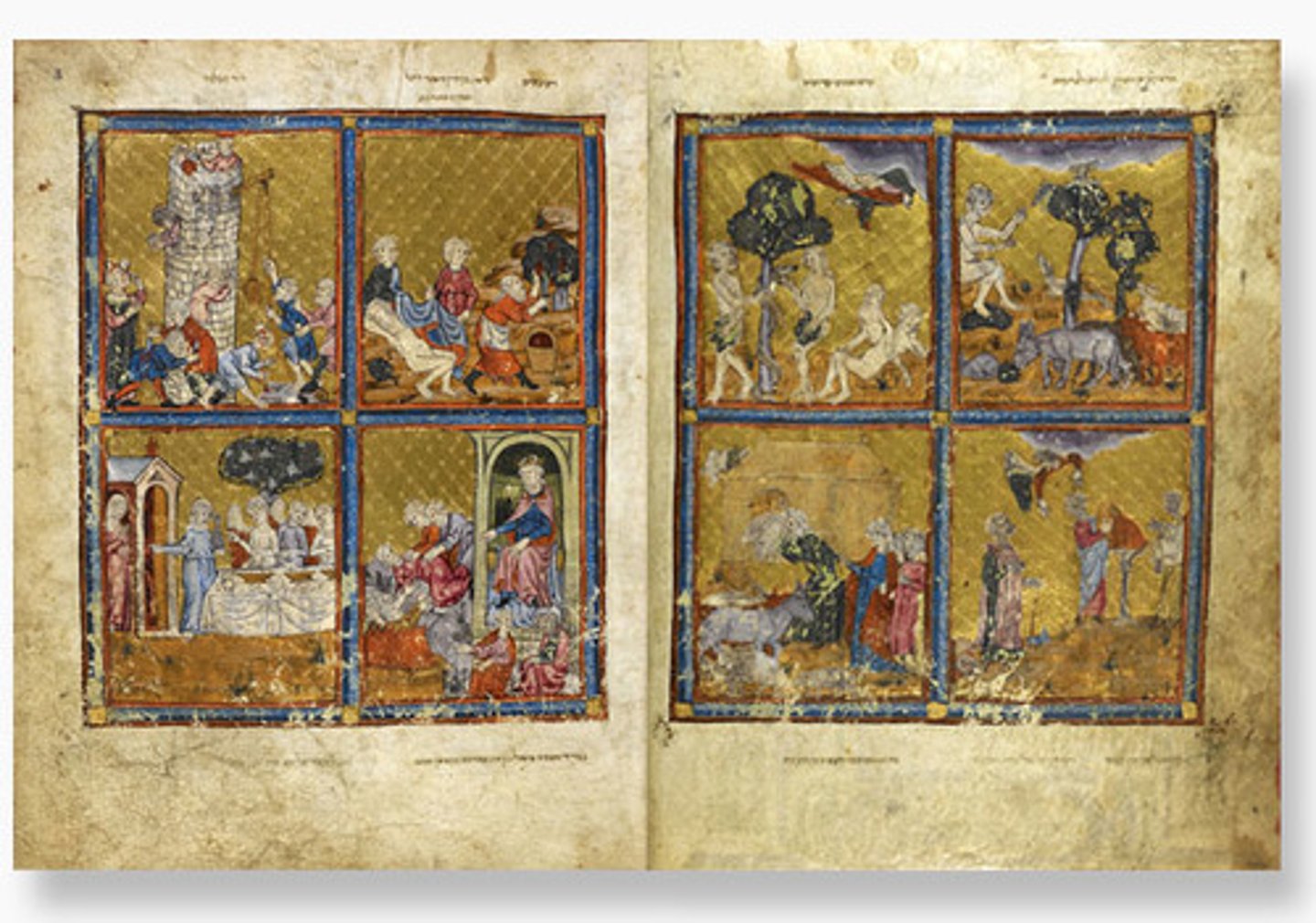Gothic Art
1/6
There's no tags or description
Looks like no tags are added yet.
Name | Mastery | Learn | Test | Matching | Spaced | Call with Kai |
|---|
No study sessions yet.
7 Terms
- fire in 1194 forced reconstruction of everything except facade
- dedicated to Mary (Marian shrine)
- Mary's tunic worn at Jesus's birth most sacred relic; escaped fire and seen as signal to rebuild; believed to have healing powers
- right spire from 1160; left conceived in different style: more elaborate and decorative
- importance of church reflected in speed of construction
- enlarged chevet accommodated elaborate church ceremonies
- tall vertical nature pulls eyes to ceiling and symbolically heaven
-dark, mysterious interior increase spiritual feelings
- stained glass enlivens interior surfaces
- labyrinth-like nave; facilitates circumambulation of pilgrims
Chartres Cathedral
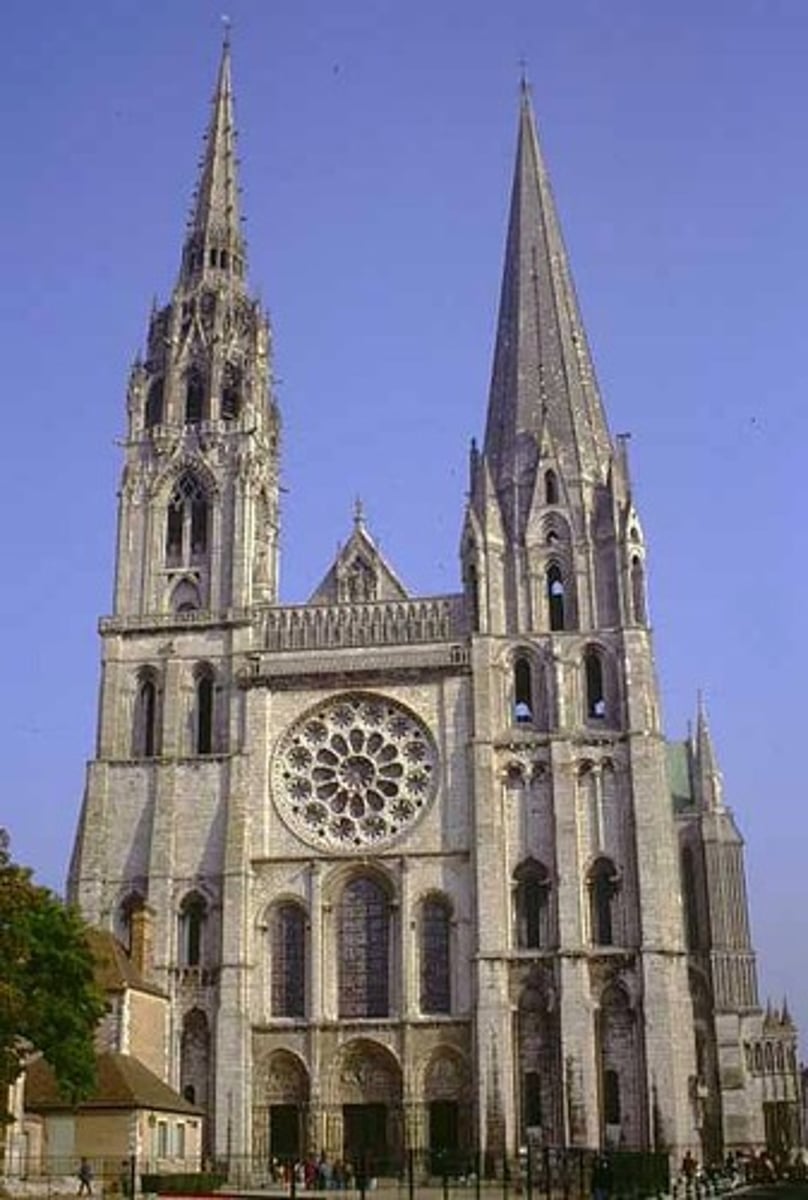
- Royal because jamb sculptures depict kings and queens from Old Testament; connection made between French and Biblical royalty
- used by church hierarchy, no commoners
- 19/24 statues survive
- jamb statues stand in front of wall, almost fully rounded
- upright, rigid, elongated figures reflect vertical columns behind and vertical nature of cathedral itself
- rich courtly dress w/ vertical folds
- robes almost hypnotic: concentric composition
- heads: serenity; slightly heavy eyes; benevolent; humanized faces
- heads lined up, but feet of different lengths
- central tympanum: Christ as Judge of the World
- three portals linked by lintels and 24 capitals that contain life of Christ
Royal Portals
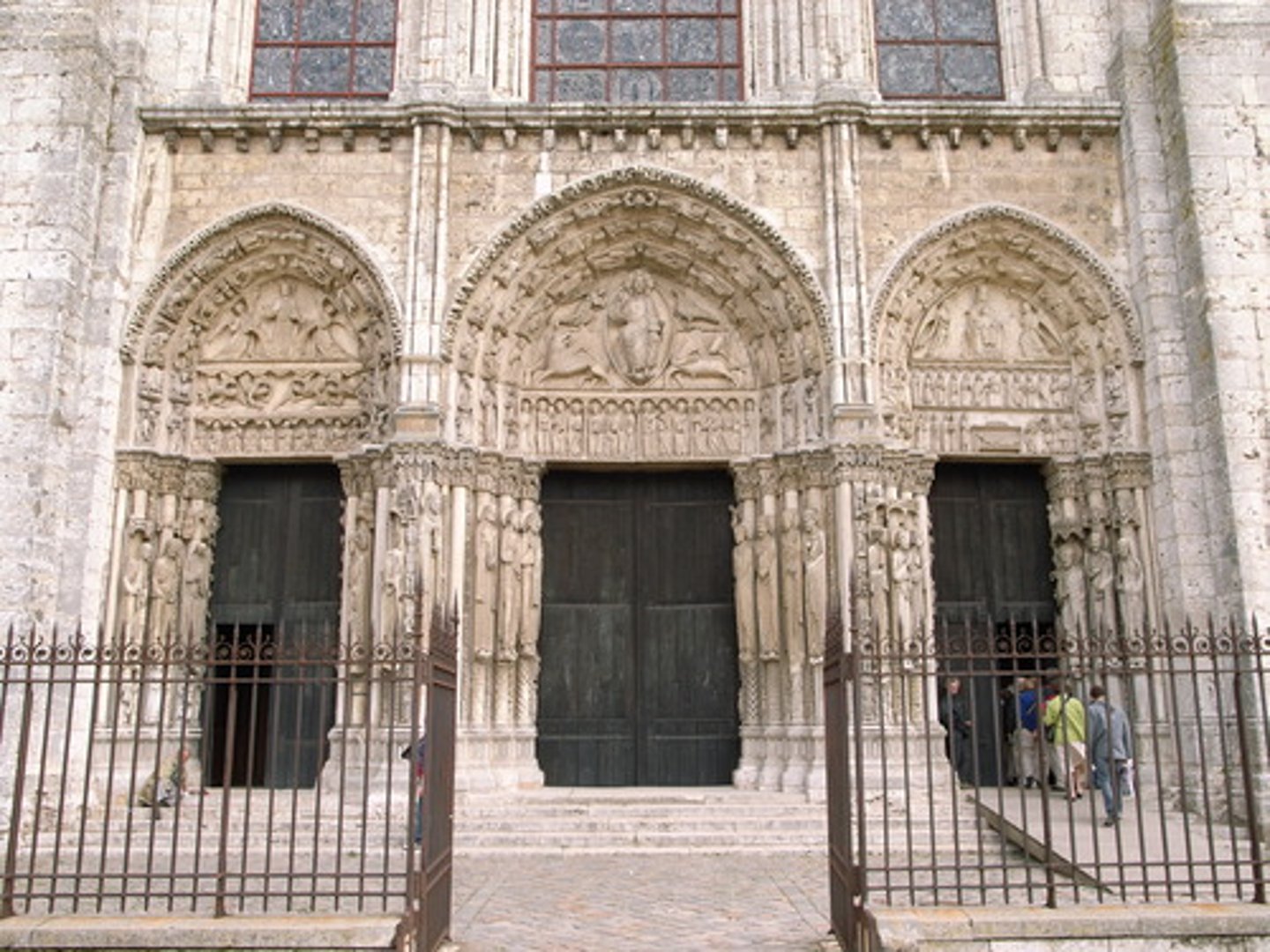
- used for private devotion
- Christ emaciated, drained of all blood, tissue, muscle; body distorted, stunted, stiff
- horror of Crucifixion manifest
- humanizing religious themes
- grape-like drops of blood reference to Christ as "mystical vineyard"
- Mary's face in expression of unbearable grief
Röttgen Pietà
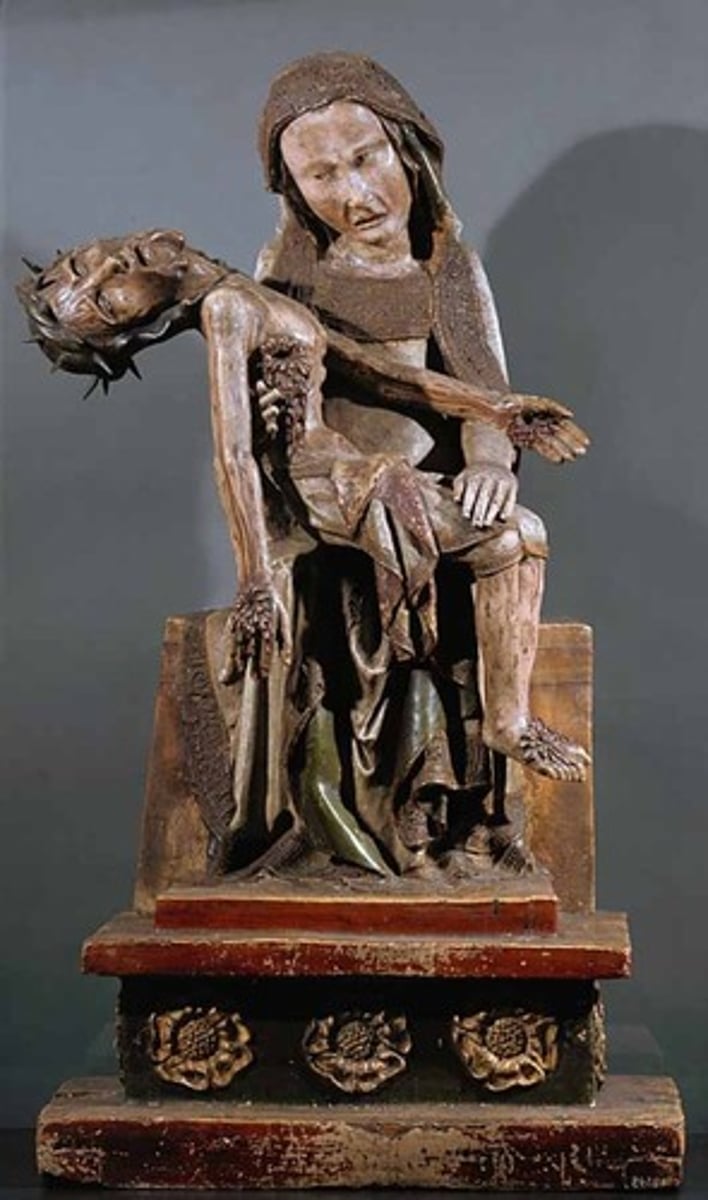
- Mary crowned as Queen of Heaven w/ Christ CHild in lap
- light as manifestation of divine; shades color patterns across grey stone of cathedral
- part of lancet window
- undamaged by fire of 194; reset w/ framing angles on either side of main scene
- bands across surface typical of early Gothic stained glass
Notre Dame de la Belle Verrière
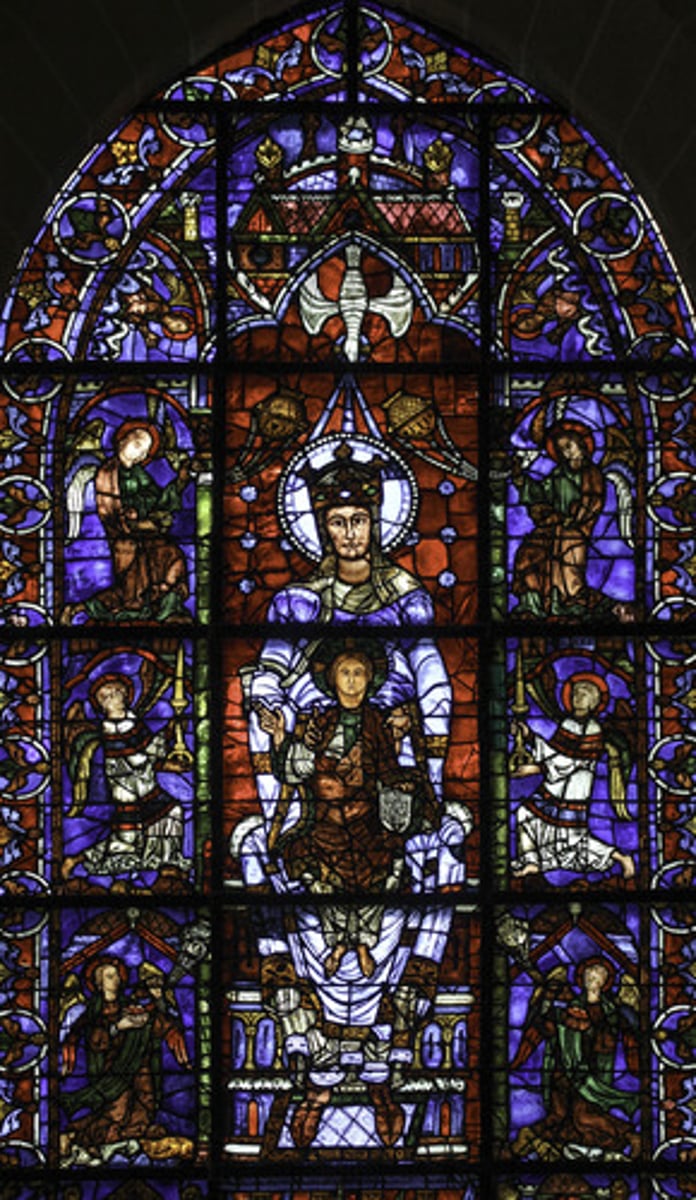
- eight medallions, format derives from stained glass windows
- two vertical columns of four painted scenes
- each scene w/ summary text of event depicted in roundel
Scenes from the Apocalypse
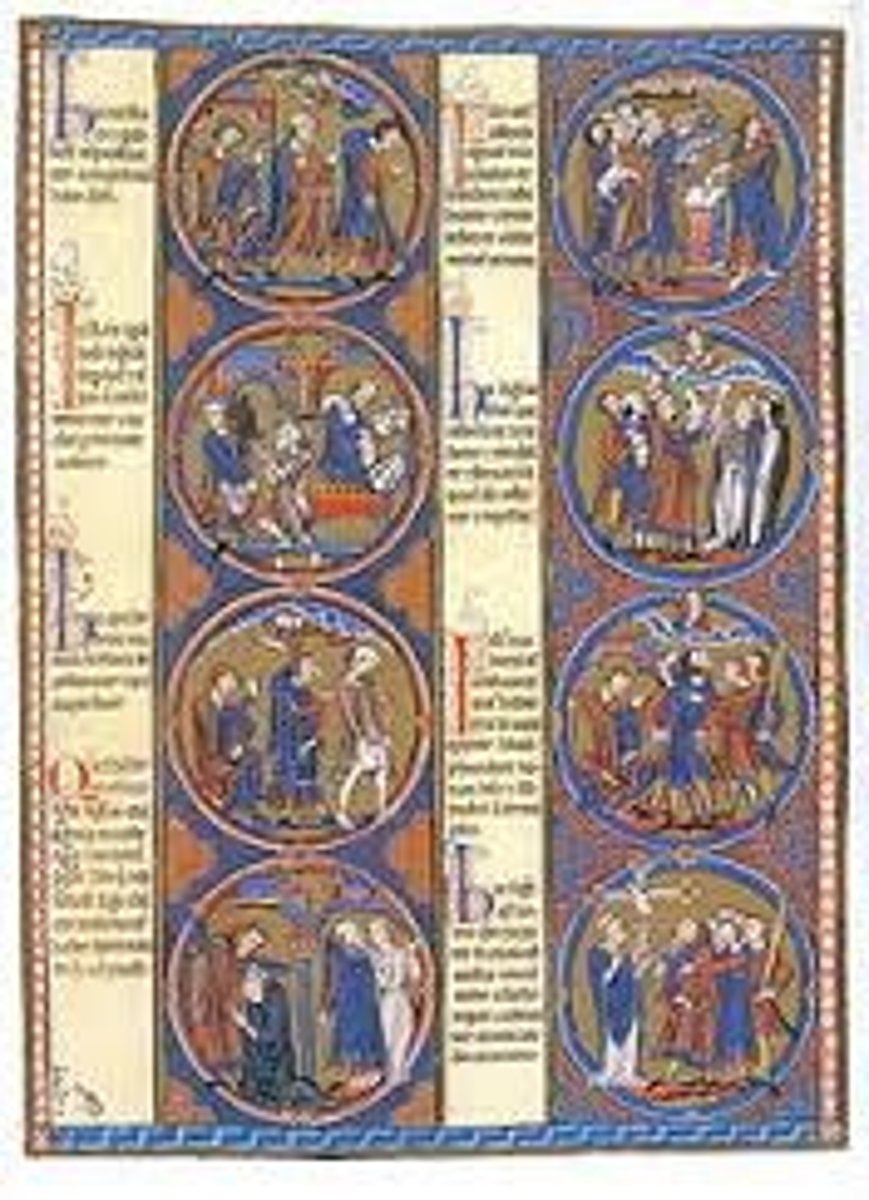
- moralized bible
- top left: Blanche of Castile, mother and regent to king
- top right: teenage King Louis IX
- Louis and mother on thrones; oversized heads, emphasizing importance; framed by cityscapes; mom instructing (higher status)
- bottom: older monk dictates to younger scribe; scribe outlining roundels seen on Scenes from the Apocalypse
- luminosity of stained glass windows, strong black outlining of forms
- modeling minimal
Blanche of Castile and Louis IX
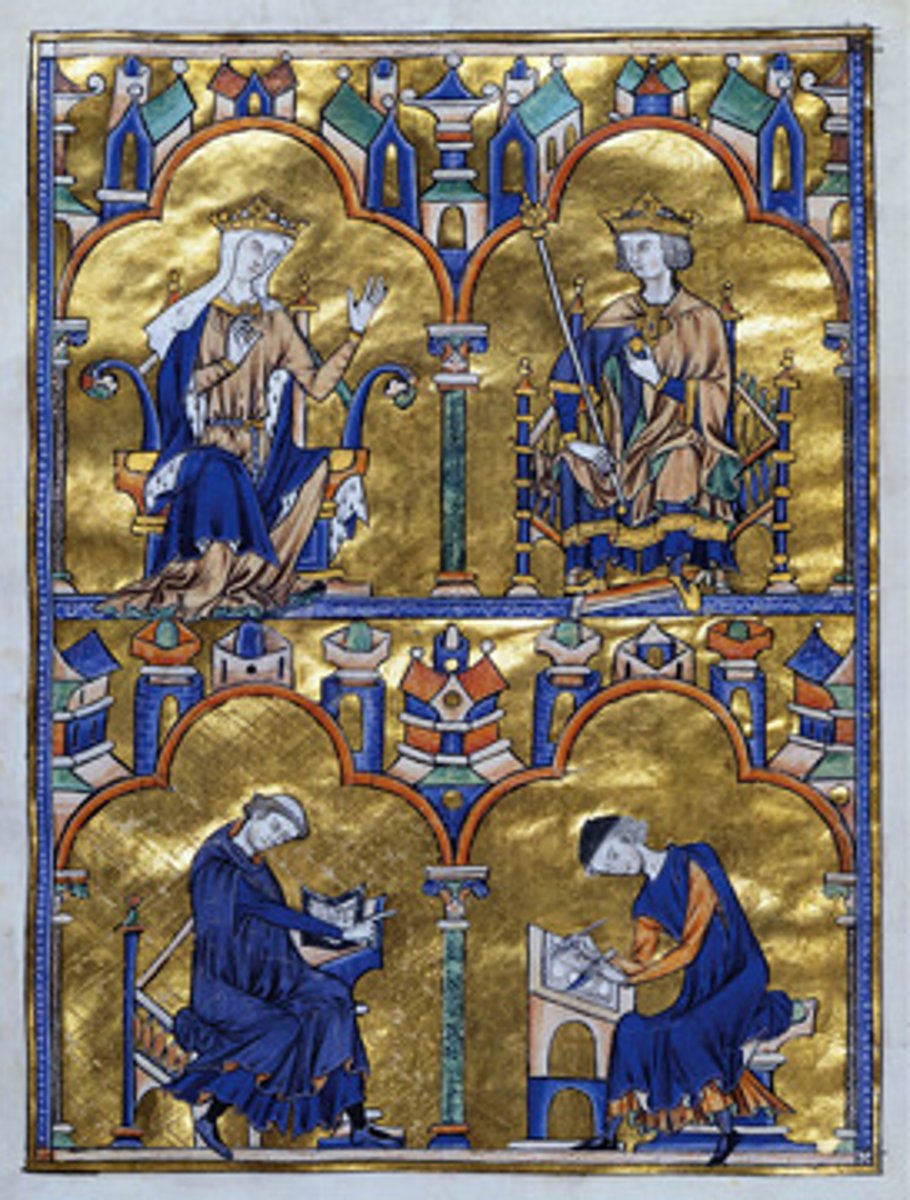
- illustrates story of Jewish exodus from Egypt under Moses and subsequent celebration
- to be read at a Passover seder
- fulfills Jewish requirement to tell story of Jews' escape from Egypt as reminder of God's mercy
- carrative cycle of events form Books of Genesis and Exodus
- this one used primarily at home; avoids more stringent restriction against holy images in a synagogue
- generally most lavishly painted of Jewish manuscripts
- two unknown artist (probably Christina); illustrated; Jewish scribe wrote Hebrew script
- style similarities to French Gothic manuscripts: handling of space, architecture, figure style, facial/gestural expression, medium
- painted in Barcelona area of Spain
- 56 miniatures using gold leaf background
- read right ot left according to manner of hebrew texts
Golden Haggadah
